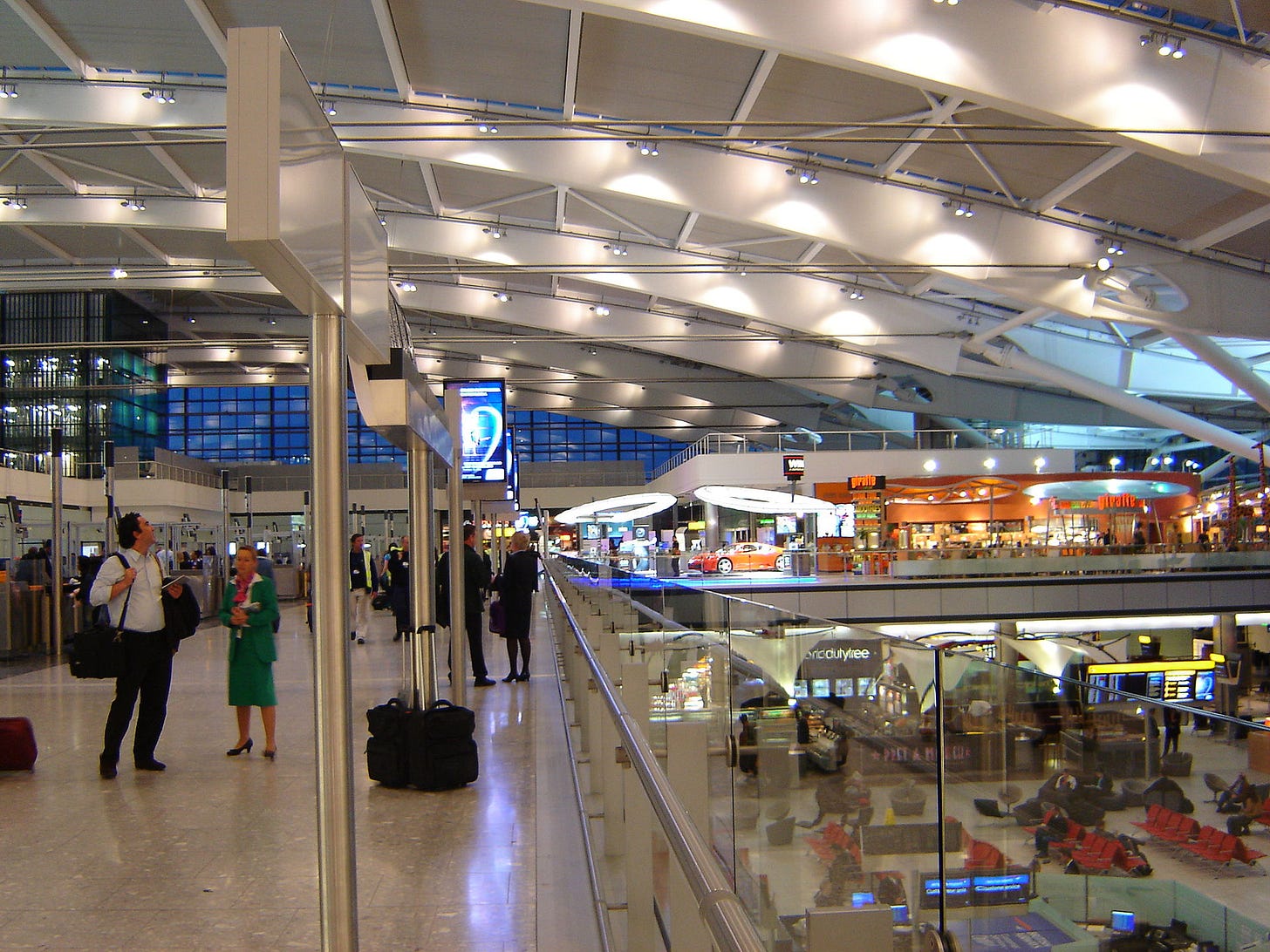Mobility Matters Daily #125 - Sustainable airport expansion and intergenerational fairness
No data viz today, sorry
Good day friend.
Yesterday was a case of the law of diminishing returns - something that frequently happens when you are managing projects. Perhaps project management isn’t my forte, as I am very much someone who prefers doing. To the news.
James
Can the expansion of airports ever be sustainable?
A recent story about the controversial expansion of Barcelona airport, and the ongoing debate into the expansion of Bristol airport in the UK (not to mention Heathrow to boot) brings to the fore a stark debate around airport planning. Can we expand air travel in a truly sustainable way? Whilst the UK government sees the future of flying as being electric and low carbon fuels, flying is one of the most polluting personal journeys you can undertake. So where is the balance?

There are possibilities to tailor carbon reduction initiatives to individual airports, as Kitti Zsobrak’s excellent TPS Bursary Paper demonstrates. The field of understanding and measuring the climate impacts of airports is mature, and systems impacts are quite well understood. The vast majority of people in the UK at least don’t take a flight every year, over half of international flights are taken by 10% of the English population, and 25% of the population have never stepped foot on a plane. Plus the role of airports as connectivity hubs for remote regions is tough to question.
But the rapid expansion of air travel globally will have an impact on the climate, and we are a long way off ensuring that airports and aviation generally is sustainable. Maybe a precautionary principle to airport expansion is a wise choice?
Multi-generational fairness may be the new paradigm in transport planning
As noted in the Freewheeling blog, the actions of the Welsh Government in utilising the findings of its Future Generations Commissioner to drive transport strategy in the nation is somewhat of an outlier. But an interesting one. We as planners plan and build things that are meant to last for over 60 years. Whilst we make assumptions as to future planning conditions in the economy and the environment, we never consider the issue of whether our planning will be fair on future generations.
Wales isn’t the first time that multi-generational thinking has been applied to policy making - Finland have been doing this for so long that their original planning considered the needs of current adults. But how do you do this? You can’t just ask 5 year olds what they want the world to look like when they are 60 and plan for it (ok, you can, and it is brilliant fun to do). Common approaches have included defining a set of integenerational principles for creating a better world, and testing plans against them. The work of Julia Puaschunder has established a framework for thinking of integenerational fairness in policy making.
Perhaps all we should do, as was the case in Wales, is just do. Stopping things that are bad now surely means we will be stopping worse impacts in the future. Maybe. But lets think this through first.
Visualisation of the Day
Sorry to disappoint, but today was a bit thin on the ground on the visualisation front. Unless you wanted a picture of a map or something. It will be back tomorrow!
If you do nothing else today, do this
Read this article in Wired about how phantom warships are creating havoc by having their GPS tracking technology used to ensure the safety of all vessels give out an incorrect position. Not just slightly incorrect, but deliberately so.
